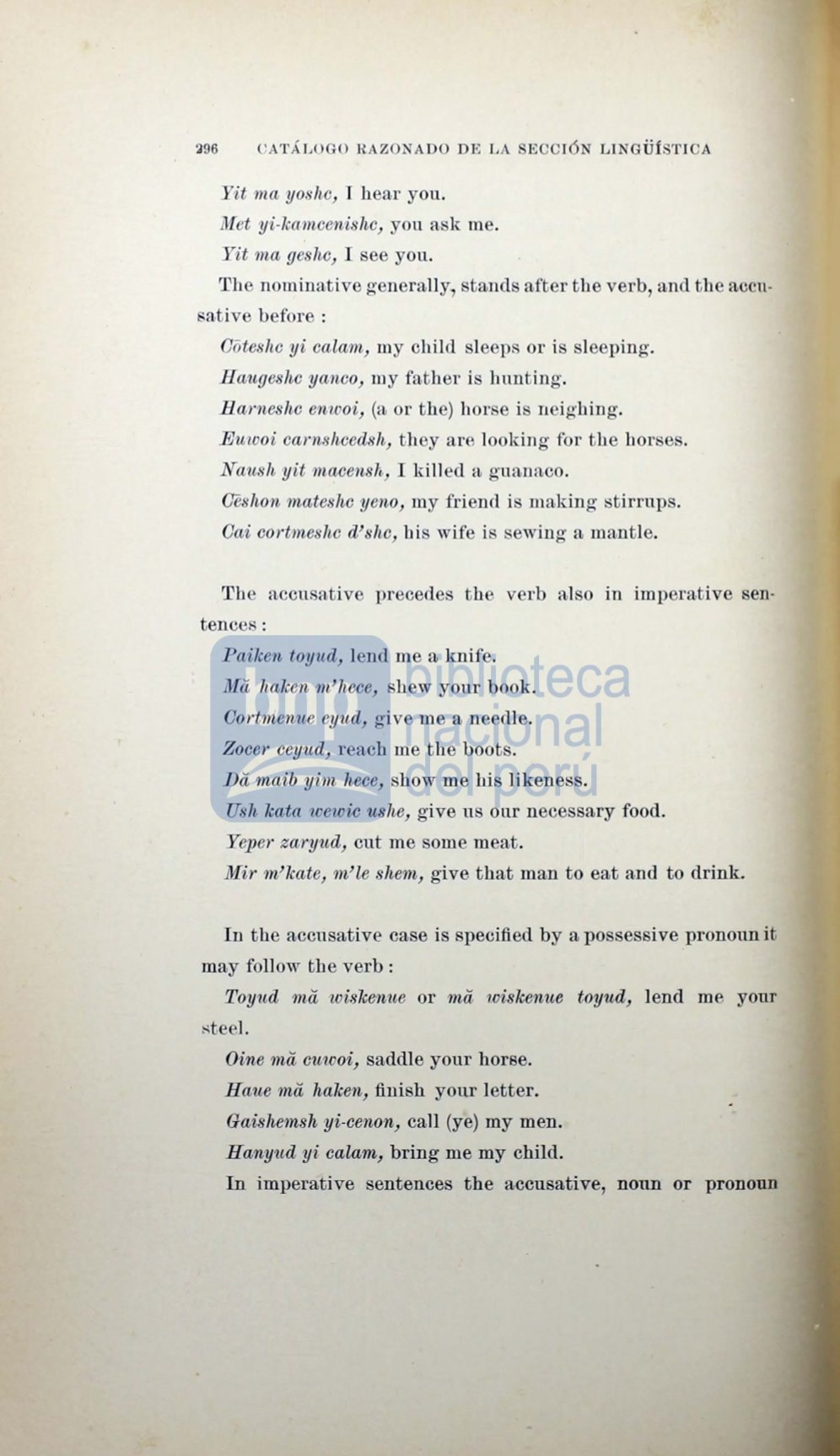

~96
CA'l'Á l,OGO RAZONADO DE LA ECCIÓN LlNGÜÍSTJCA
Yit ma yosho,
1 hear you.
Met yi-lr.amwen·ishc,
you ask me.
Yit ma geshc,
I see you.
The nominative
genera.Uy, stands after tbe verb, ancl the accu-
a,t ive before :
Ooteshc yi calam,
my child sleeps or is sleeping.
Haugeshc yanco,
my father is hunting.
Barneshc enwoi,
(a or the) horse is neighing.
Eiiwoi carnshoedsh,
they are looking for tbe horses.
Nai"8h yit macensh,
I killecl
a
guanaco.
Geshon mateshc yeno,
my friend is making stirrups.
Octi cortmeshc d'shc,
bis wife is sewing a mant le.
The accusative precedes the verb also in imperative sen-
tences:
Pailcen toyud,
lencl me a knife.
Ma halcen 11i'hece,
shew your book.
Oortirieniie eyud,
give me a needle.
Zocer ceyiid,
reach me the boots.
Da maib yim hece,
show me bis likeness.
Ush lcata wewio itshe,
give us otu necessary food.
Yeper zaryud,
cut me sorne meat.
Mir m'lcate, m'le shem,
give t hat man to eat and to drink.
In the accusative case is specified by a possessive pronoun it
may follow the verb :
Toyitd ma wislceime
or
ma 10islceniie toyud,
lencl me your
,;teel.
Oine ma cuwoi,
saddle your borse.
Haue ma halcen,
finish your letter.
Gaishemsh yi-cenon,
call (ye) my men.
Hanyud yi calam,
bring me my child.
In imperative sentences tbe accusative, noun or pronoun
















